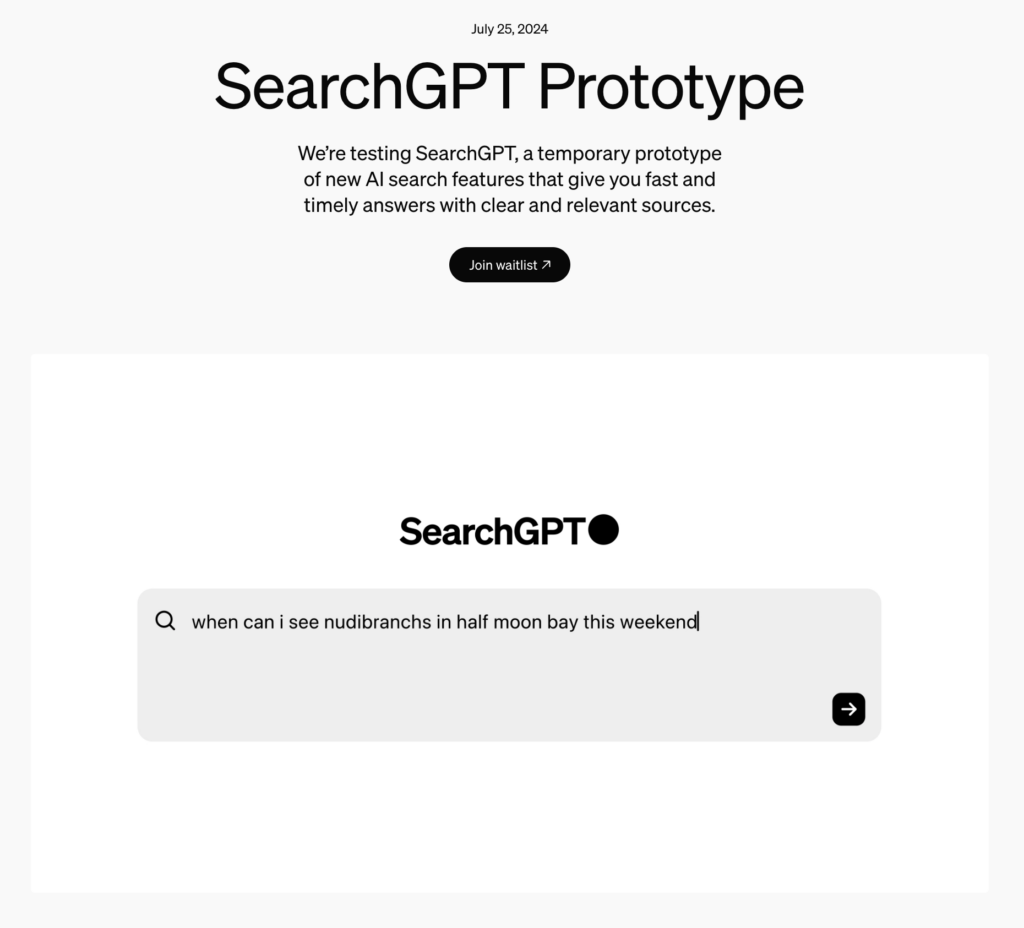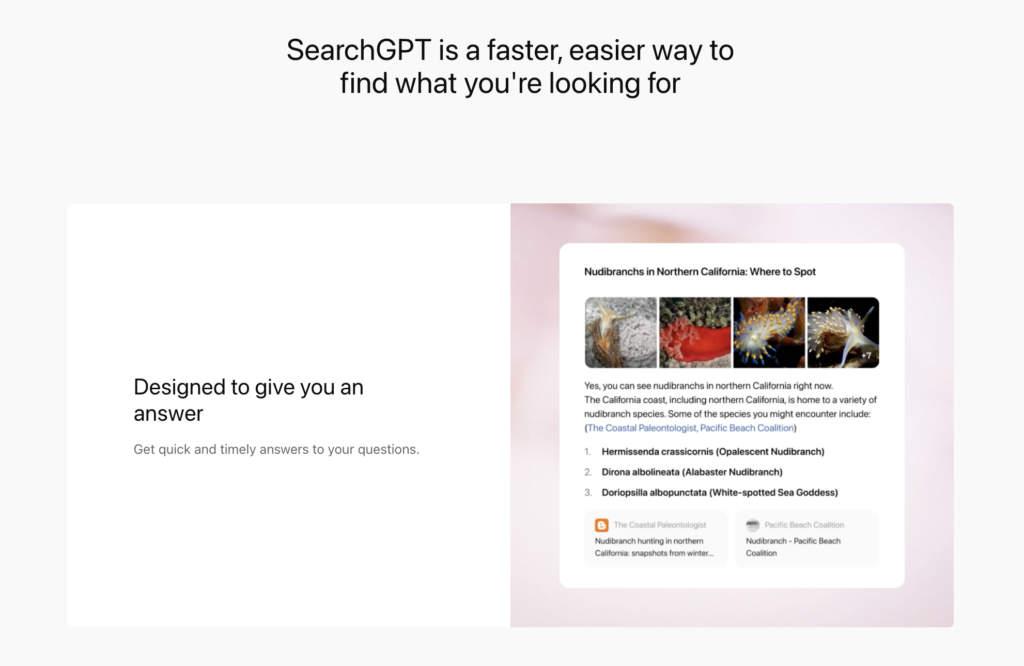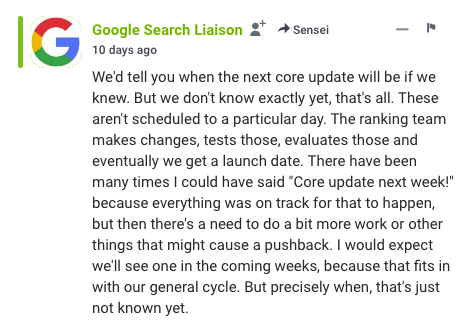Each month, Lumar’s in-house tech SEO experts hand-pick some of the industry’s top news items from across the web to keep you up-to-date on all things SEO and website optimization.
Shake-ups in the AI search space with a SearchGPT announcement and new Google AI overview visibility trends, a potential new core update from Google Search, and more… July has been a busy month for industry news!
Let’s dig into the key headlines from July…
Study shows almost 60% of Google searches are now ‘zero-click’
Sparktoro’s latest study into zero-click searches shows that for every 1,000 searches in the US, only 360 result in a click-through to the open web. In the EU, it rises only slightly to 374 searches out of 1,000. This doesn’t mean that 60% of searchers leave the session; in each case, more than 20% of users go on to perform another search. However, it must also be noted that almost 30% of the clicks that do come from Google Search are going straight through to other Google-owned products (e.g., YouTube, Image, or Maps).
For publishers, the need to optimize for zero-click searches has never been greater. Google is gradually reducing the percentage of search traffic it sends out to the wider web, and new on-SERP features like AI overviews are only speeding up this change. (Though this summer, Google appears to be rolling back the appearance of AI SERP features for queries relating to certain industries — more on that below!)
[Source: Rand Fishkin at Sparktoro]
Visibility for Google’s AI overviews drops to 7% of queries, a record low
The number of queries returning AI overviews in Google Search fell to a low of 7% in June, a record since monitoring began late last year. (Note: prior to the launch of AI Overviews, monitoring included Google’s SGE results). Industries with the biggest drops in AI search overview occurrences include education, entertainment, and e-commerce.
Google has been promising to refine and improve its AI Overviews feature ever since its launch, when a spate of inaccurate, misleading, and sometimes dangerous results made it into its AI-generated results. It’s unsurprising, then, to also see a big decline in the presence of UGC sites cited in these AI-generated results. This is especially true of Reddit and Quora, whose visibility in AI search overviews fell by 85.71% and 99.69%, respectively.
[Source: Danny Goodwin at Search Engine Land]
SearchGPT prototype launched by OpenAI
And speaking of AI search… This week, OpenAI announced their foray into online search with SearchGPT. Per their July 25 announcement:
“We’re testing SearchGPT, a prototype of new search features designed to combine the strength of our AI models with information from the web to give you fast and timely answers with clear and relevant sources. We’re launching to a small group of users and publishers to get feedback. While this prototype is temporary, we plan to integrate the best of these features directly into ChatGPT in the future. “
Some ChatGPT users may already see the SearchGPT prototype features in the platform when they log in. You can also sign up for the waitlist here. An exact date for a wider rollout of SearchGPT has not yet been announced by the company.


[Source: OpenAI announcement on SearchGPT – July 25, 2024]
Another Google core update is likely in the coming weeks
Google Search Liaison Danny Sullivan has hinted that a new core update could be launching in the next couple of weeks. He wrote in the Search Engine Roundtable comments section that: “I would expect we’ll see one in the coming weeks because that fits in with our general cycle. But precisely when, that’s just not known yet.”

Danny says that while it’s impossible to predict exactly when the next update will happen, given Google’s general cycle, we can expect to see one in the coming weeks. Last-minute code tweaks and other forms of pushback can always occur, however, so it’s not possible to give a precise date.
[Source: Barry Schwartz at Search Engine Roundtable]
Google’s translated SERPs expand into more languages
In a rare (and welcome) piece of good news for publishers, Google is rolling out translated results into eight new languages, including Arabic, Korean, and Turkish. Google previously published guidance on translated results, showing how they aim to help users access content published in different languages and support publishers in reaching new audiences.
Titles on a translated SERP are machine-translated, much in the same way they are when opening a page through Google Translate. If a user clicks the translated title link, they will be presented with a page that’s also been machine-translated. It’s possible to switch back to the original language at any time.
[Source: Latest documentation updates on Google Search Central]
Podcast: Rendering JavaScript for Google Search
Zoe Clifford from Google’s rendering team is the latest guest on the Search Off the Record podcast. She joins Martin Splitt and John Mueller from Google Search Relations to discuss how Google Search deals with JavaScript sites and the typical process Googlebot goes through to render a page. The conversation also touches upon the potential negatives associated with dynamic rendering, which Google recently started to discourage.
[Source: Google’s Search Off the Record podcast]
Video: SEO Office Hours July 2024
Phased migrations, page indexing errors, and best practices for organizing sitemaps are all topics in the latest July 2024 edition of Google’s SEO Office Hours.
One of the main takeaways is confirmation that ccTLDs may have a slight edge in rankings vs. other forms of locale-specific URLs. There’s also a question about Google’s generic crawler, GoogleOther — the question-writer wants to know what non-search features GoogleOther crawling supports. The response (at 1:38 in the video) provides very little clarity on exactly what the crawler is used for, only confirming that Search is always linked specifically to Googlebot.
[Source: July 2024 SEO Office Hours on YouTube]






